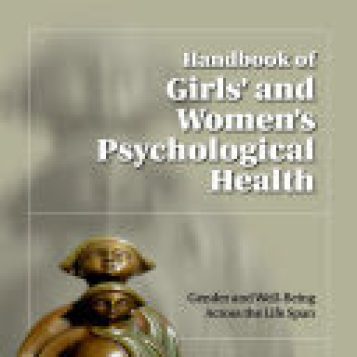Joint Program in Social Work and Psychology Area Chair; Associate Professor of Psychology
She, Her, Hers
About
My research expands knowledge on off-time pubertal development—the experience of entering puberty earlier or later than one’s same-gender peers. This non-normative biological transition is associated with increased risk for depression, anxiety, delinquency, and academic disengagement. Yet for Black girls and other youth of color, these risks are compounded by social, cultural, and structural factors that are often overlooked in developmental science.
I center the interpersonal and contextual experiences of off-time developing Black girls to understand how relationships with caregivers, peers, and educators shape their mental health, behavior, and educational trajectories. My work is grounded in Black Feminist and Womanist theories, which provide a culturally rooted, strength-based lens for examining how systems of oppression—including racism, sexism, adultification, and classism—interact with developmental timing.
One strand of my research investigates how parallel developmental processes, such as ethnic-racial identity development and exposure to psychologically threatening experiences (e.g., racial and gender discrimination), contribute to resilience or vulnerability during puberty. Another strand explores how interpersonal dynamics (e.g., peer exclusion, teacher-student relationships) and contextual conditions (e.g., school racial composition) shape the outcomes of early or late pubertal development.
Methodologically, I draw on both secondary data analysis and original data collection, using mixed methods to understand how biological transitions are embedded within complex social ecologies.
Areas of study: Pubertal timing and tempo • Ethnic-racial and gender identity development • Peer and family relationships • School context and belonging • Psychosocial and academic outcomes
Select Publications
Carter, R., Blazek, J. L., & Kwesele, C. (2020). Perceptions of pubertal timing relative to peers: Comparison targets and social contexts of comparison. Cultural Diversity and Ethnic Minority Psychology, 26(2), 221.
Carter, R., Seaton, E. K., & Blazek, J. L. (2020). Comparing Associations Between Puberty, Ethnic–Racial Identity, Self‐Concept, and Depressive Symptoms Among African American and Caribbean Black Boys. Child Development.
Blazek, J. L., & Carter, R. (2019). Understanding disordered eating in Black adolescents: Effects of gender identity, racial identity, and perceived puberty. Psychology of Men & Masculinities, 20(2), 252.
Seaton, E., & Carter, R. (2018). Pubertal timing, racial identity, neighborhood and school context among Black adolescent females. Cultural Diversity and Ethnic Minority Psychology, 24, 40 – doi: 10.1037/cdp0000162
Carter, R., Halawah, A., & Trinh, S. L. (2018). Peer exclusion during the pubertal transition: The role of social competence. Journal of Youth and Adolescence, 47, 121 – doi: 10.1007/s10964-017-0682-8
Carter, R., Mustafaa, F. N., & Leath, S. (2017). Teachers’ expectations of girls’ classroom performance and behavior: Effects of girls’ race and pubertal timing. The Journal of Early Adolescence, 0272431617699947
Carter, R., Seaton, E., & Rivas-Drake, D. (2017). Racial identity in the context of pubertal development: Implications for adjustment. Developmental Psychology, 53, 2170 – doi: 10.1037/dev0000413
Carter, R., Leath, S., Butler-Barnes, S. T., Byrd, C. M., Chavous, T. M., Caldwell Howard, C., & Jackson, J. S. (2017). Comparing associations between perceived puberty, same race- friends and -peers, and psychosocial outcomes among African American and Caribbean Black girls. Journal of Black Psychology, 43, 836 – 862. doi: 10.1177/0095798417711024
Butler-Barnes, S. T., Leath, S., Williams, A., Byrd, C. M., Carter, R., & Chavous, T. M. (2017). Promoting resilience among African American girls: Racial identity as a protective factor. Child Development. doi:10.1111/cdev.12995.
Alternate Office
- Carter Lab - 1249 East Hall
Alternate Phone


